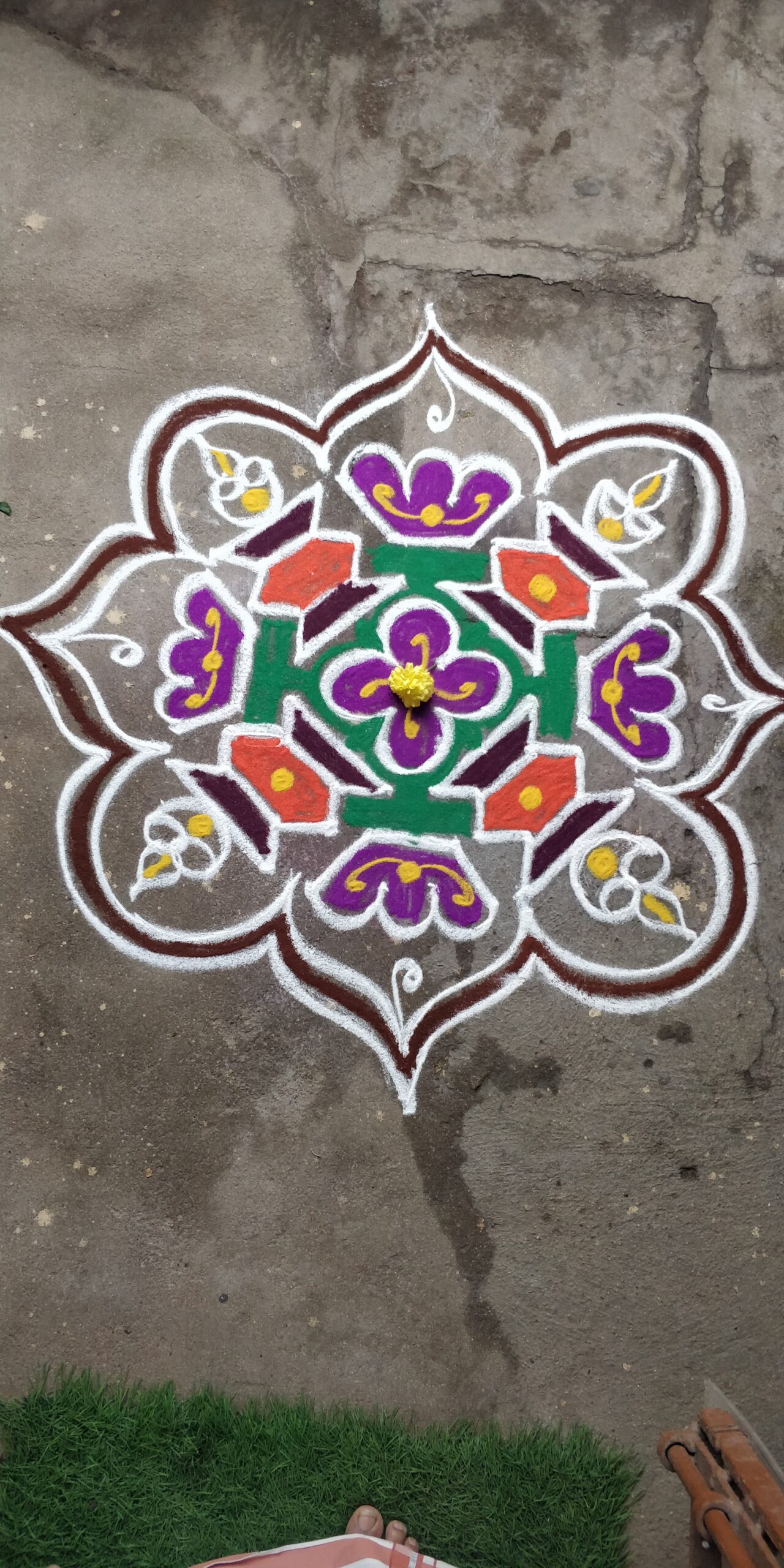
Ayudha Puja is an important Hindu festival celebrated predominantly in the southern states of India, including Tamil Nadu, Karnataka, Andhra Pradesh, Telangana, and Kerala. It is a part of the Navaratri festival and falls on the ninth day (Navami) of the nine-day festivities. The word “Ayudha” means tools or weapons, and “Puja” means worship. Thus, Ayudha Puja is the ritualistic worship of tools, instruments, and weapons, symbolizing respect for the tools that provide livelihood and protection.
Significance of Ayudha Puja:
Worship of Tools and Instruments:
- In Ayudha Puja, tools, weapons, and instruments that individuals use in their daily lives—whether for work, education, or protection—are worshipped as a mark of gratitude and respect. It reflects the deep-seated belief that every tool and object one uses has divine significance and should be respected.
Cultural and Historical Importance:
- The festival has its roots in ancient traditions where warriors used to worship their weapons, seeking divine blessings for success in battles. Today, it extends to professionals from all walks of life who worship their tools—be they computers, books, plows, or vehicles—as they are seen as extensions of their own efforts.
- The worship is not limited to weapons but includes machinery, musical instruments, books, and tools used by artisans, students, and professionals.
Symbol of Prosperity and Protection:
- Worshipping the instruments of work symbolizes the desire for continued prosperity, success, and protection. It also emphasizes the importance of work and skills, fostering respect for the profession and the tools that support it.
Association with Goddess Durga and Saraswathi:
- While Ayudha Puja is primarily dedicated to Goddess Durga, symbolizing strength and protection, it is also linked to Saraswathi Puja, where students and professionals worship books, pens, and musical instruments to seek the blessings of Saraswathi, the goddess of knowledge and arts.
How Ayudha Puja is Performed:
Preparation and Cleaning:
- A day before Ayudha Puja, people thoroughly clean their tools, vehicles, and instruments. Artisans clean their machinery, blacksmiths polish their tools, students arrange their books, and households clean their kitchen tools. In industries and factories, entire workshops are cleaned.
- Vehicles, such as cars and motorbikes, are washed and decorated with flowers and colored powders (kumkum, turmeric).
Decorating the Tools:
- After cleaning, the tools and vehicles are adorned with flowers, sandal paste, turmeric, and vermilion (kumkum). A rangoli (decorative pattern) is often drawn in front of these objects, signifying prosperity and auspiciousness.
Worship Ritual:
- People gather their tools and place them in front of an altar or in a clean area. Prayers are offered to the tools, invoking divine blessings for their proper functioning and success.
- In temples and homes, priests or family members chant mantras and perform rituals, which include offering flowers, fruits, coconuts, and sweets to the tools. Incense sticks are lit, and the tools are waved with a lamp (aarti) as a mark of respect.
- A mixture of sandalwood paste, turmeric, and vermilion is applied to the tools and vehicles, signifying their sanctity.
Offerings and Prasadam:
- After the puja, offerings like fruits, coconuts, and sweets are distributed as prasadam (blessed food) to everyone. The idea is to share the blessings with all.
Workplaces and Schools:
- In offices, schools, and industries, Ayudha Puja is celebrated collectively, where tools, books, computers, and machines are worshipped. In some places, no work is done after the puja to allow the tools and machines to rest, symbolizing a day of peace and respect.
Special Puja for Vehicles:
- Vehicles are given special attention during Ayudha Puja. People decorate their cars, bikes, trucks, and buses with flowers and leaves. Some even draw traditional symbols (like swastikas) on the front or sides of their vehicles, and coconuts are often broken in front of vehicles as part of the ritual for safety and good fortune.
Symbolism of Ayudha Puja:
- Respect for Work and Tools: Ayudha Puja teaches us to respect the tools of our trade, recognizing them as divine instruments that support us in our profession or craft.
- Harmony between Humans and Nature: The festival highlights the harmonious relationship between people, their work, and nature. Tools, often derived from natural resources, are treated with reverence, emphasizing sustainability and gratitude.
- Protection and Strength: For those in the armed forces or other professions that require protection, weapons are worshipped to seek divine strength and success in their duties.
Ayudha Puja in Modern Times:
Though rooted in ancient traditions, Ayudha Puja has evolved to include modern tools like computers, mobile phones, and other technological devices. In educational institutions, students offer their notebooks, pens, and laptops for blessings, while in factories and workshops, machinery is worshipped to ensure smooth functioning.
In essence, Ayudha Puja is a festival that bridges the traditional with the modern, reminding everyone to honor their work, their tools, and the divine connection that sustains their livelihood and growth.

Saraswati Puja
Saraswathi Puja is an important festival in India, celebrated with great reverence in honor of Goddess Saraswathi, the deity of knowledge, wisdom, learning, and the arts. It is observed predominantly during the Navaratri festival, particularly on the ninth day (Navami), and holds significance for students, teachers, artisans, musicians, and professionals who rely on knowledge and skills in their daily work.
Importance of Saraswathi Puja in India:
- Worship of Knowledge and Learning:
Saraswathi is considered the embodiment of knowledge and learning. On this day, students and scholars seek her blessings to excel in their academic pursuits and wisdom. Books, musical instruments, and educational tools are placed in front of the goddess as offerings, symbolizing the pursuit of knowledge. - Cultural and Artistic Celebration:
Saraswathi Puja is also significant for artists and musicians. Many cultural performances, music recitals, and dance performances are held as a mark of devotion, with the belief that the goddess grants success in the arts. Instruments are cleansed and worshipped during this period. - Ayudha Puja Tradition:
In South India, particularly Tamil Nadu and Karnataka, the festival is also known as Ayudha Puja. Workers, craftsmen, and professionals worship their tools and instruments, believing that these tools symbolize their profession and skill. By paying respect to them, they seek divine blessings for prosperity and success in their work. - Vidyarambham Ceremony:
On the day following Saraswathi Puja, young children are introduced to learning in a ritual called Vidyarambham. This marks the beginning of a child’s education, where they are made to write their first letters, often with the assistance of a teacher or parent, symbolizing the start of their journey toward wisdom. - Symbol of Inner Peace and Enlightenment:
Beyond the external aspects, Saraswathi represents the inner light of wisdom and peace. The festival is a reminder of the importance of purity of thought, speech, and action in the pursuit of knowledge. Worshipping Saraswathi is believed to dispel ignorance and lead one toward enlightenment and clarity of mind.
Thus, Saraswathi Puja holds immense importance in various regions of India, symbolizing the integral role of knowledge, learning, and arts in life. It also emphasizes the cultural and spiritual values associated with education, creativity, and professional integrity.
Saraswati puja was celebrated at Saitechinf NEET JEE Academy with full enthusiasm by Saitechies on 10th October 2024, Thursday. The function was started at 7:00 pm with prayer followed by as short speech about the importance of Ayudha puja and Saraswati puja by Dr E. Ramanathan. Mangala arathi was done at 8:00 pm; sweets, avala, pori, fruits were distributed to all students. Parents of Sai Krupa were also present at the end of the function. Library cards were issued to students. Library Book transactions were initiated on this auspicious day to students. With the blessings of the God the function was over by 8:30 p.m.



















